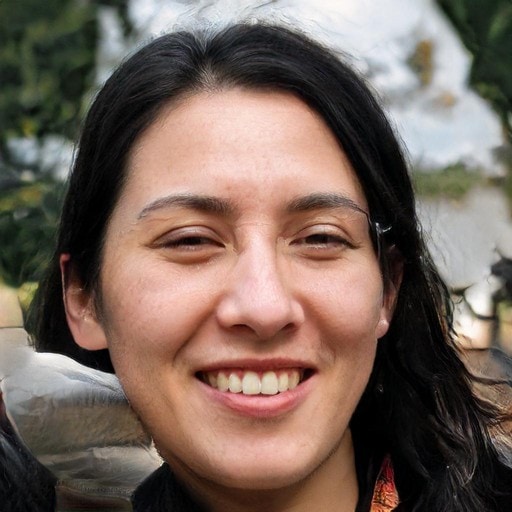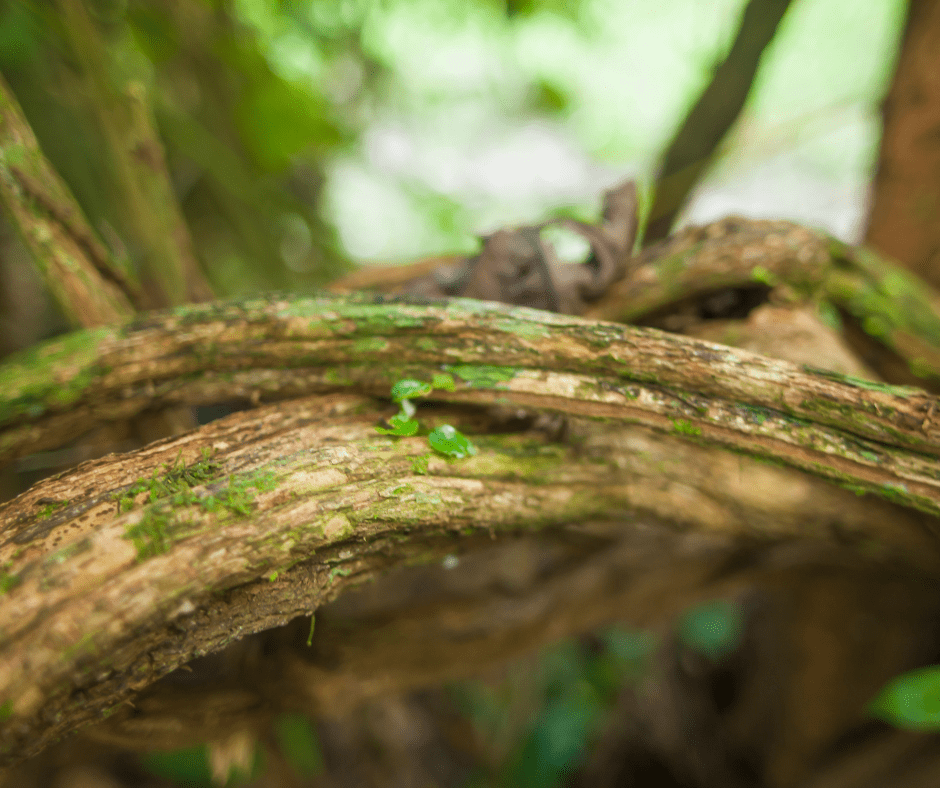The intersection of traditional practices and modern mental health therapies is an ever-expanding frontier, and at its forefront is a centuries-old Amazonian brew known as Ayahuasca. This sacred plant medicine has been used by indigenous communities for spiritual and therapeutic purposes for ages, and recently, it has begun to pique the interest of mental health professionals and researchers worldwide.
Studies have shown that Ayahuasca may have potential benefits in treating various psychiatric disorders (The current state of research on ayahuasca: A systematic review of human studies assessing psychiatric symptoms, neuropsychological functioning, and neuroimaging). It has been found to affect frontal and paralimbic activation (Increased frontal and paralimbic activation following ayahuasca, the pan-amazonian inebriant).
A word of caution: This article is not an endorsement of self-medication or unsupervised use of Ayahuasca. Always seek advice from a healthcare professional for any mental health concerns. Now, let’s begin our journey.
Key Takeaway:
- Ayahuasca has been used for centuries in South America for spiritual and healing purposes. It is a potent brew made from the Banisteriopsis caapi vine and other plants containing DMT.
- Ayahuasca therapy shows potential for treating mental health conditions such as depression and anxiety, but more research is needed to understand its efficacy and safety.
- It is important to approach ayahuasca use with caution and preparation. Seek out experienced practitioners and follow harm reduction guidelines to reduce the risks associated with ayahuasca use.
What is Ayahuasca and How is it Used?
Ayahuasca is a psychoactive brew made from the Banisteriopsis caapi vine and other plant compounds, commonly found in South America. The drink has been used for centuries by indigenous Amazonian tribes in shamanic rituals to gain spiritual insight, connect with nature and heal various physical as well as mental illnesses.
The potency of ayahuasca comes from its primary ingredient, the Banisteriopsis caapi vine that contains harmine and harmaline – two alkaloids that inhibit the activity of an enzyme that breaks down serotonin in the brain. This leads to an increase in serotonin levels which affects mood, hunger, body temperature and other bodily functions. Book An Ayahuasca Retreat Ayahuasca Is A plant-based medicine that may have side effects. Make sure and do independent research before attending a retreat.
Ayahuasca is traditionally used as part of a complex ritual led by a trained shaman or medicineman who invokes spirits to guide participants on their journey. During the ceremony, individuals drink the brew and often experience profound visions and altered states of consciousness that can vary from person to person.
Studies have suggested that ayahuasca may be effective in treating depression, anxiety disorders, PTSDand addiction among others. Furthermore, it has been reported to help individuals gain insight into their lives and resolve long-standing emotional conflicts.
Examining the Potential Benefits of Ayahuasca Therapy On Mental Health
Ayahuasca therapy is a topic that has gained immense popularity over the years. People often turn to this ancient practice to seek healing and guidance for their mental health issues. Examining the potential benefits of Ayahuasca therapy may help us understand how it works and why it can be effective.
According to WebMD “Research shows that the ayahuasca experience might act much like an intense form of psychotherapy and might have a link to improvements in some psychiatric symptoms.”
Ayahuasca is a psychedelic brew made from two Amazonian plants – Banisteriopsis caapi and Psychotria viridis. The active ingredient in Ayahuasca is DMT, which is responsible for inducing hallucinations and altered states of consciousness. Researchers believe that Ayahuasca helps people with mental health issues by altering their perceptions, emotions, and behavior patterns. It can also help individuals connect with their inner selves and gain insights into their past traumas. Numerous individuals seek out these rituals as a form of therapeutic intervention for issues like eating disorders, depression, substance abuse, and PTSD. Research from the Global Ayahuasca Project indicates promising results: 78% of participants suffering from depression reported significant improvement or complete resolution of their symptoms. Similarly, 70% of those grappling with anxiety stated that their condition had markedly improved or fully dissipated.(Global Ayahuasca Project)
One study conducted on individuals suffering from treatment-resistant depression found that Ayahuasca therapy significantly reduced depressive symptoms after just one week of treatment. It also helped patients overcome certain psychological barriers that were hindering their progress towards recovery. Another study showed similar results in treating substance addiction, anxiety disorders, and PTSD.
Apart from its therapeutic benefits, Ayahuasca has been used traditionally in indigenous communities for religious and spiritual purposes. It is believed to be a tool for enhancing creativity, learning new skills, and connecting with nature. However, it’s imperative to remember that working with plant medicines can be challenging and emotionally intense. Therefore, it’s crucial to approach Ayahuasca therapy with caution and respect.
Understanding the Risks and Side Effects of Ayahuasca Use
Ayahuasca is a powerful plant medicine that has been used in traditional spiritual and healing practices for centuries. Understanding the risks and side effects of ayahuasca use is crucial, as it can have both positive and negative effects on mental health.
Ayahuasca works by combining natural substances found in plants to create a powerful psychedelic brew. The active ingredient, DMT, is an intense hallucinogen that can induce profound altered states of consciousness. These experiences are often described as being transformative, allowing individuals to gain insight into their own minds and emotions.
However, the use of ayahuasca can also be risky. It can trigger serious psychological reactions such as anxiety, paranoia, and even psychosis. In addition, the plant mixture may interact with certain medications or medical conditions, leading to dangerous or even fatal consequences.
Recent studies have shed light on some of the lesser-known risks associated with ayahuasca use. For example, long-term use has been linked to chronic digestive problems such as vomiting and diarrhea. And while ayahuasca may offer temporary relief from depression or anxiety symptoms, it’s not a sustainable solution for those suffering from mental illness.
But despite these risks, many people still seek out ayahuasca for its potential therapeutic benefits. As more research is conducted on this controversial substance, it’s important to approach its use with caution and informed decision-making.
If you’re considering trying ayahuasca for yourself – whether for healing or personal growth – do your research first. Seek out reputable retreat centers that prioritize safety and adherence to traditional practices. And remember: just because others have had positive experiences does not mean it’s the right choice for you.
Ayahuasca and Depression: Emerging Evidence
Ayahuasca and Depression: Emerging Evidence suggests that there is growing interest in exploring the potential of this plant medicine in treating mental health issues, particularly depression. A recent study found there was a reduction in anxiety and depression behaviors, concluding that ayahuasca has an anxiolytic and antidepressant potential in this animal model of neuroinflammation [Pubmed]
Researchers believe that ayahuasca works by affecting the brain’s serotonin levels, which can improve mood and alleviate symptoms of depression. Studies have shown that ayahuasca can also increase empathy, promote introspection, and induce states of consciousness that can help individuals gain new perspectives on their lives.
Emerging evidence around ayahuasca and depression has highlighted its potential as a treatment option for people who have not responded to traditional antidepressants or therapy. This includes individuals with treatment-resistant depression or those who experience anxiety alongside their depression.
Some rare information about ayahuasca use shows that it could be helpful in alleviating symptoms of post-traumatic stress disorder (PTSD) which overlaps several symptoms with depression. In addition, spiritual experiences after taking ayahuasca sometimes envision through meaning-making perspective found helpful–this could further reinforce depressive clients’ coping style and effectiveness.
During one ayahuasca ceremony that I attended, a woman shared her experience of struggling with severe depression for years until she tried ayahuasca. She described how the ceremony helped her confront her deepest emotions in a safe space where she felt supported by others going through similar experiences. While it was not a cure-all solution, she felt empowered to continue her healing journey beyond the ceremony.
As we delve deeper into Ayahuasca’s potential for addressing mental health conditions like depression, we must also examine its efficacy in managing anxiety disorders. Next up, let’s dive into what science tells us about Ayahuasca & Anxiety Disorders with eager anticipation!
Ayahuasca and Anxiety Disorders: What the Science Tells Us
Ayahuasca and Anxiety Disorders: What the Science Tells Us
Research suggests that Ayahuasca may be effective in treating anxiety disorders by increasing levels of serotonin – a neurotransmitter responsible for regulating mood – in the brain. Additionally, it may help individuals confront their fears and anxieties during the intense psychedelic experience.
However, it’s important to note that Ayahuasca is not a cure-all solution for anxiety disorders. The efficacy and safety of its use must be further explored through clinical trials.
Interestingly, recent studies have also found that Ayahuasca experiences themselves can lead to positive changes in personality traits such as openness and emotional stability. This could potentially aid individuals with anxiety disorders who often struggle with interpersonal relationships and emotional regulation.
Ayahuasca can bring about profound insights and healing when used safely and responsibly. In the next section, we’ll discuss how to prepare for an intentional journey with this sacred plant medicine.

Ayahuasca: Preparing for a Safe and Meaningful Journey
When it comes to Ayahuasca, preparation is key to ensure a safe and meaningful journey. In this part of the guide, we explore what you need to know before embarking on your Ayahuasca journey. We will dive into the importance of following guidelines for harm reduction and risk management, which are essential for protecting both your physical and mental health during the ceremony. Additionally, we will discuss the importance of choosing an experienced practitioner who is knowledgeable about the Ayahuasca brew and can guide you through the potentially intense and life-changing experience. After all, an informed and careful approach to Ayahuasca is crucial for a transformative experience that can offer long-term benefits for mental health.
Following Guidelines for Harm Reduction and Risk Management
Following guidelines for harm reduction and risk management is crucial when considering an Ayahuasca ceremony. It is important to remember that Ayahuasca can be a powerful and potentially dangerous medicine, and it should always be approached with caution and preparation. However, by taking certain precautions and following established guidelines, it is possible to minimize the risks and maximize the potential benefits of this unique experience.
- Research – Before undertaking an Ayahuasca ceremony, it is essential to thoroughly research both the substance itself and any potential practitioners or retreat centers. You should look for reviews, testimonials or recommendations from trusted sources, including friends who have already undergone such experiences.
- Screen practitioners – Ensure that practitioners are trustworthy, experienced professionals who maintain a safe environment during ceremonies.
- Physical assessment – Establishing your physical health beforehand reduces risk tremendously.
- Preparation for subjective experience – Prepare yourself mentally for the experience with meditation, deep breathing exercises or mild physical activities like Yoga or Tai Chi.
- Post-ceremony integration – The journey doesn’t just end when your time in the Amazon ends: afterward there is work to be done and proper post-ceremonial procedures need to be followed in order to successfully integrate into daily life what was learned from the ceremony which includes follow up sessions.
Following these guidelines for harm reduction and risk management can help ensure that your Ayahuasca experience is as safe, meaningful, and positive as possible. Remember that energetic healing corresponds with physical healing accompanied by withdrawal symptoms akin to addiction recovery. Opening up about these feelings (emotional vulnerabilities) will provide comfort throughout this journey towards overall mental wellness.
Choosing an experienced practitioner for your Ayahuasca ceremony requires you to carefully assess not only their qualifications but also their personality traits that align well with your own. Just like finding a religious leader or therapist you trust some sacred spaces or people sit better with varying personalities!
Choosing an Experienced Practitioner for Your Ayahuasca Ceremony
When it comes to an Ayahuasca ceremony, choosing an experienced practitioner is crucial for a safe and meaningful journey. It’s more than just serving the Ayahuasca brew; the practitioner’s role involves facilitating healing, providing spiritual guidance, and ensuring physical safety throughout the experience.
An experienced practitioner has extensive knowledge of how Ayahuasca works on an individual’s psychological and physiological level. They can customize the ceremony according to your unique needs and ensure that you are adequately prepared before ingesting Ayahuasca. Additionally, an expert knows how to manage various challenges that may arise during the ceremony, such as nausea or vomiting.
It’s essential to remember that not all practitioners are accredited and qualified to perform Ayahuasca ceremonies. Choosing a non-experienced practitioner can lead to adverse effects or cause harm physically, mentally, or emotionally. Moreover, an untrained practitioner may give incorrect dosages of Ayahuasca or provide inadequate guidance throughout the experience.
The history of Ayahuasca ceremonies dates back thousands of years in South America. The indigenous tribes have been using this psychoactive brew as a ritualistic tool for spiritual growth and traditional healings. Only recently has its use spread beyond its cultural origin in South America and across borders worldwide.
So if you ever plan to participate in these ceremonies ensure you find someone with experience who can successfully guide you through your healing journey safely.
Ready for what comes next? Let me take you on a journey where I reveal What You Need To Know About Ayahuasca And Mental Health
Key Takeaways from Current Research on Ayahuasca’s Therapeutic Potential
Key takeaways from current research on Ayahuasca’s therapeutic potential can be summarized as follows:
- Ayahuasca is a plant-based psychoactive substance that has been used for centuries for spiritual and healing purposes.
- Current research suggests that ayahuasca may have therapeutic potential for treating depression, anxiety, PTSD, addiction, and other mental health conditions.
- Ayahuasca has been shown to increase feelings of well-being, mindfulness, and connection with others, as well as reduce symptoms of anxiety and depression.
- Early studies suggest that ayahuasca may increase neuroplasticity and activate parts of the brain involved in emotional regulation and self-reflection.
- Ayahuasca should only be taken under controlled settings with experienced guides or practitioners.
- It’s important to consult with a licensed medical professional first before exploring alternative treatments like ayahuasca therapy.
Future Directions for Ayahuasca Therapy and Mental Health Treatment.
In recent years, ayahuasca therapy has gained widespread attention as a potential treatment for mental health disorders. The future of ayahuasca therapy looks bright, with ongoing research and new clinical trials providing promising results.
Ayahuasca therapy works by activating the serotonin receptors in the brain, leading to increased emotional processing and reduced negative emotions such as anxiety and depression. It also increases neuroplasticity, which allows the brain to create new neural pathways and adapt to changing situations.
One exciting potential direction for ayahuasca therapy is its combination with traditional Western therapies such as cognitive-behavioral therapy. By integrating ayahuasca into these traditional treatments, patients may experience even greater benefits and long-term healing.
Additionally, there is still much to be learned about how ayahuasca works on a physiological level. Further research could help explain why some people experience profound effects from just one ceremony, while others require multiple sessions before seeing any changes.
In terms of practical suggestions for those interested in trying ayahuasca therapy, it’s crucial to work with experienced facilitators who prioritize safety and provide integrative support after the ceremony. It’s also essential to approach this type of treatment with an open mind and heart, ready to confront buried emotions and past trauma.
Five Facts About Ayahuasca and Mental Health:
- ✅ Ayahuasca is a powerful psychedelic brew originating from the Amazon. (Source: Healthline)
- ✅ Ayahuasca has been used for centuries by indigenous people for spiritual and healing purposes. (Source: Psychology Today)
- ✅ In recent years, ayahuasca has gained popularity as an alternative treatment for depression, anxiety, and PTSD. (Source: The New York Times)
- ✅ Ayahuasca ceremonies typically involve a shaman guiding participants through the experience, which can last several hours and include intense hallucinations. (Source: Vice)
- ✅ Ayahuasca is not without risks, and it should only be taken under the guidance of a trained shaman in a safe and controlled setting. (Source: MAPS)
FAQs about Ayahuasca And Mental Health: What You Need To Know
What is Ayahuasca and how is it related to mental health?
Ayahuasca is a plant-based psychedelic brew traditionally used in indigenous amazonian cultures for religious and medicinal purposes. Recently, it has gained attention as a potential treatment for various mental health conditions, such as depression, anxiety, and addiction.
Is Ayahuasca safe for mental health treatment?
Although some studies suggest that ayahuasca may have therapeutic benefits it is not considered a mainstream treatment for mental health conditions. It also carries potential risks such as adverse reactions and it should only be used under the supervision of a trained professional.
What are some potential benefits of Ayahuasca for mental health?
Some research suggests that ayahuasca may help alleviate symptoms of depression, anxiety, and addiction. It may also promote self-awareness and spiritual growth. However, more studies are needed to confirm these potential benefits.
What are the potential risks of Ayahuasca for mental health?
Ayahuasca can cause adverse reactions such as nausea, vomiting, and diarrhea. It may also trigger psychological distress or worsen underlying mental health conditions. In rare cases, it can cause severe side effects such as psychosis seizures or heart problems.
Who should not use Ayahuasca for mental health treatment?
Ayahuasca is not recommended for everyone especially those with a history of psychiatric disorders, heart conditions or substance abuse. It is also contraindicated with certain medications and should not be used by pregnant or breastfeeding women.
How can I find a safe and reputable Ayahuasca retreat center for mental health treatment?
It is crucial to do thorough research and choose a reputable ayahuasca retreat center that provides a safe and supportive environment, trained facilitators and proper medical care. You can ask for recommendations from trusted sources, such as healthcare professionals or experienced ayahuasca users. It is also advisable to ask questions about the center’s policies, procedures and credentials before committing to a retreat.
Sources:
https://www.ncbi.nlm.nih.gov/pmc/articles/PMC10346174/
https://pubmed.ncbi.nlm.nih.gov/35843462/
About Author

Kitty Ramirez is a passionate writer, explorer, and advocate for the preservation and understanding of indigenous cultures and traditional plant medicines. As the author of the blog, Kitty shares her knowledge and experiences from her many journeys across the globe, connecting her readers with the wisdom and healing practices of ancient cultures.
Born and raised in a multicultural family, Kitty developed a deep curiosity about the world and its diverse cultures at a young age. Her adventurous spirit led her to embark on a life of travel, exploring the far corners of the Earth in search of transformative experiences and a deeper understanding of human connection.
Throughout her travels, Kitty has had the opportunity to immerse herself in various indigenous communities, learning from their rich traditions and sacred healing practices. Her encounters with plant medicines, such as Ayahuasca, Sananga, and Rapé, have been particularly life-changing, inspiring her to share the power of these ancient remedies with a broader audience.
Legal Disclaimer: The information, including but not limited to, text, graphics, images and other material contained on this website are for informational purposes only. No material on this site is intended to be a substitute for professional medical advice, diagnosis treatment or recommendation. Ayahuasca is not an FDA-approved substance and side effects have been found. Make decisions based on your own level of comfort as an adult, not from anything you read on this website.






